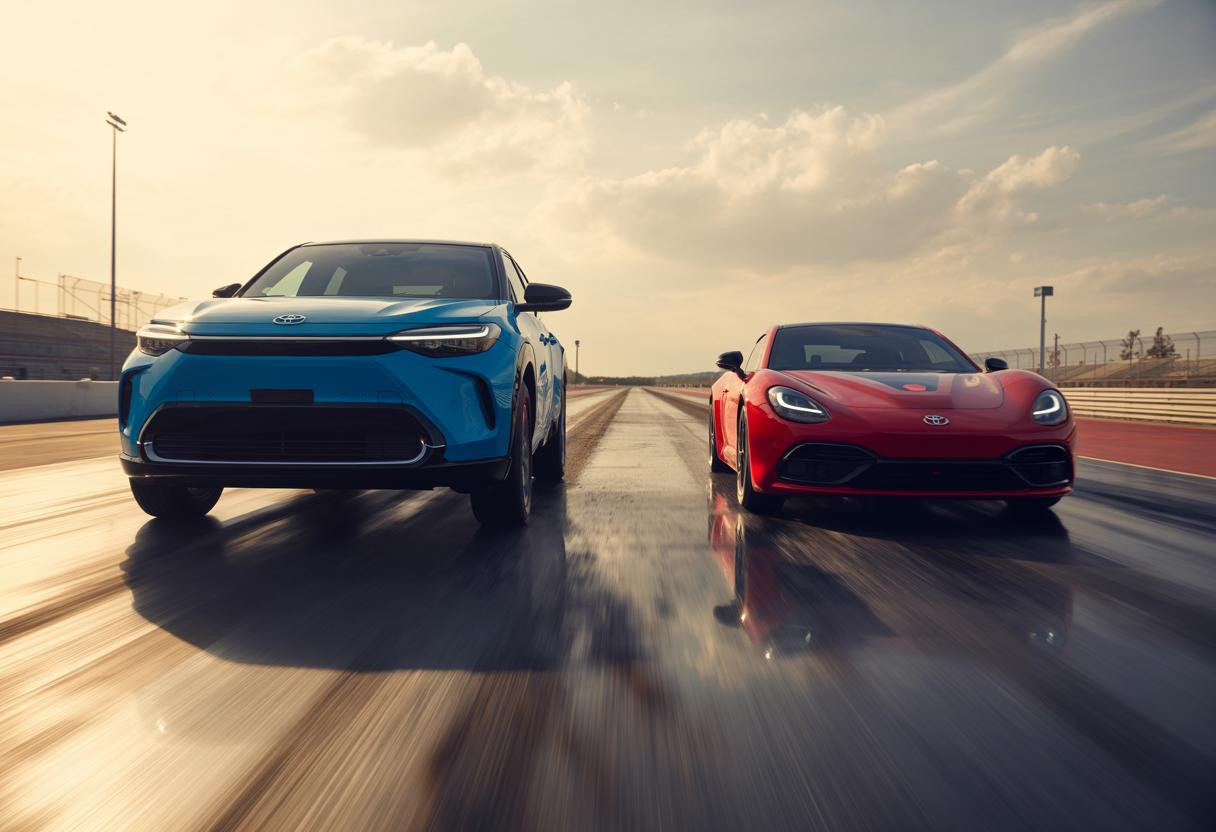When Toyota announced their smallest SUV would outrun a sports car, automotive experts called it impossible engineering. Yet the 2025 C-HR electric SUV achieves exactly that, accelerating from 0-60 mph in just 5 seconds—faster than Toyota’s own GR86 sports coupe.
The power revolution behind compact performance
The C-HR’s 338-horsepower dual-motor system represents a quantum leap from traditional compact SUVs. Toyota’s engineers didn’t just add electric motors; they completely reimagined what small vehicles could accomplish. This AWD configuration delivers instant torque distribution, creating a driving experience that feels more like piloting a rocket than cruising in an economy vehicle.
Why Toyota chose performance over practicality
“We benchmarked against premium competitors, not just mainstream options,” explains Chief Engineer Daisuke Ido. This strategic decision positions the C-HR as a premium electric statement rather than another utilitarian crossover. Toyota recognized that electric vehicle buyers increasingly demand both environmental consciousness and exhilarating performance.
Technology that charges ahead of competition
The C-HR’s 77 kWh battery pack enables an impressive 290-mile range while supporting rapid DC charging. Like advanced EV charging innovations emerging globally, Toyota’s battery preconditioning system optimizes charging efficiency across various climates, addressing one of electric mobility’s persistent challenges.
Sports car performance metrics that surprise
- 338 hp vs GR86’s 228 hp – 48% more power
- 5.0 seconds vs GR86’s 6.1 seconds – 1.1 seconds faster acceleration
- AWD traction vs RWD limitation – superior all-weather capability
- Zero emissions vs gasoline consumption – environmental advantage
Market positioning as luxury disruptor
Toyota’s strategy mirrors how tech companies position premium products in competitive markets. The C-HR targets environmentally conscious professionals who refuse to compromise on driving excitement. This demographic represents a growing segment willing to pay premium prices for sustainable performance.
Economic implications beyond sticker price
While the C-HR’s estimated $45,000-$50,000 price exceeds traditional compact SUVs, its total cost of ownership tells a different story. Annual energy costs approximate $300 compared to $1,500 for gasoline equivalents, while maintenance requirements decrease significantly due to fewer moving parts.
Engineering challenges overcome through innovation
Creating sports car acceleration in an SUV body required solving complex thermal management puzzles. Toyota’s engineers developed advanced cooling systems that maintain battery performance during aggressive driving, much like how manufacturers tackle fast charging challenges in consumer electronics.
Future implications for automotive design
The C-HR’s success could reshape consumer expectations across all vehicle segments. If compact SUVs can deliver supercar-level acceleration, traditional performance categories may become obsolete. This democratization of speed through electrification represents a fundamental shift in automotive hierarchy.
Could this mark the beginning of performance becoming standard rather than premium? Toyota’s bold gamble suggests that tomorrow’s drivers won’t choose between efficiency and excitement—they’ll demand both in every vehicle they consider.
